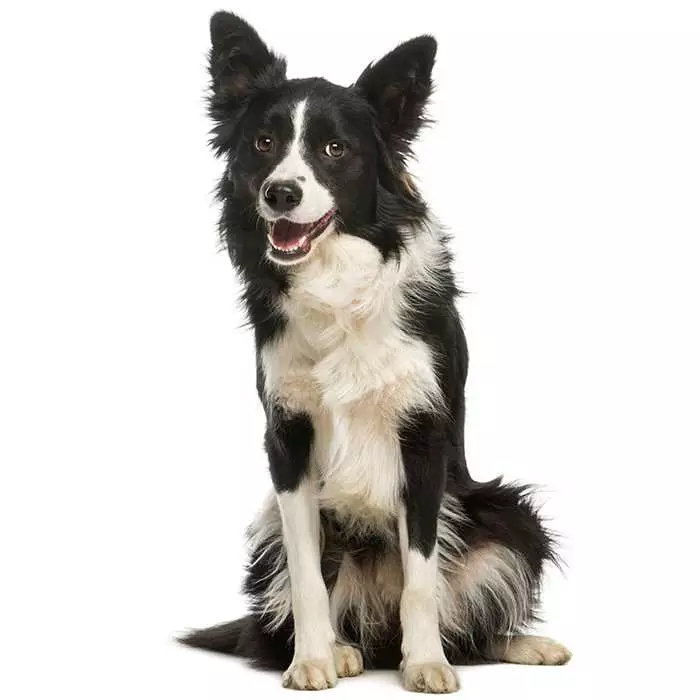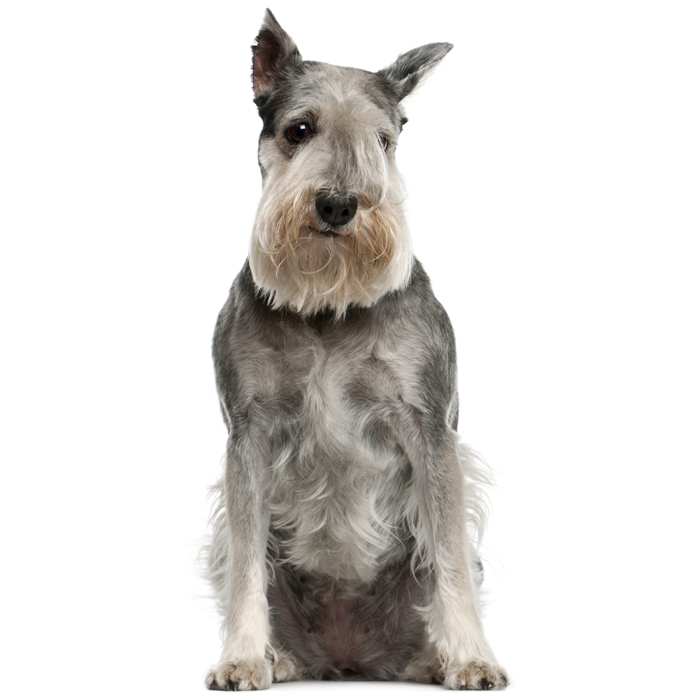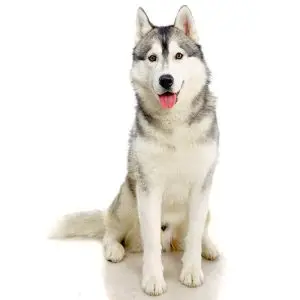German Shepherd
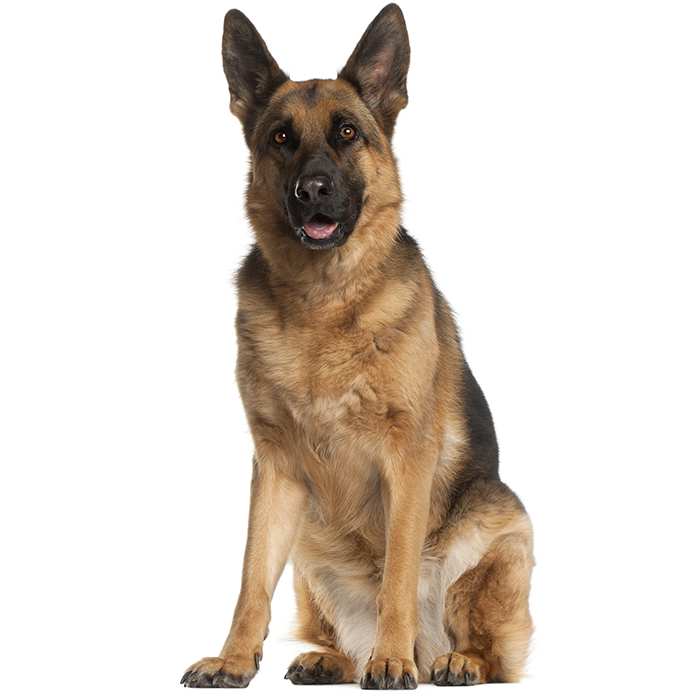

| Recommended for | Active families with older children |
| Breed Classification | Herding group |
| Other names | Alsatian, GSD (German Shepherd Dog) |
| Lifespan | 10 - 14 years |
| Size | Large |
| Temperament | Alert, fearless & faithful |
| Intelligence | Very high |
| Tendency to bark | Medium |
| Maintenance Level | Low-Medium |
| Health Risk | This breed has an around average probability of having health issues in its lifetime, hence it is one of the more affordable breeds to insure. |
Insuring a German Shepherd?
Get our award-winning Nose-to-Tail Cover with up to $30k annual benefit limit, up to 90% of eligible vet bills back, and no sub-limits.
Get a quick quote
Is this breed right for you?
Try our breed selector quiz to find out your best matching breed!
Insuring a German Shepherd?
Get our award-winning Nose-to-Tail Cover with up to $30k annual benefit limit, up to 90% of eligible vet bills back, and no sub-limits.
Get a quick quote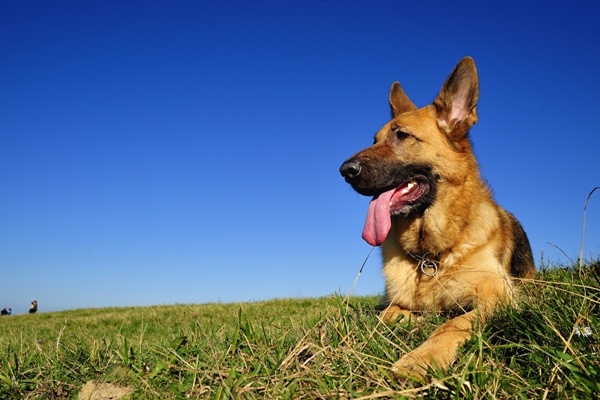
Breed history of German Shepherds
The German Shepherd Dog is a relatively new breed that was developed in the 1890’s by a German cavalry officer named Max von Stephanitz, who made it his goal to develop the ideal herding dog. He admired the intelligence, strength and ability of the sheepdogs native to Germany, but believed that none was the perfect working dog.
In 1899 at a dog show, von Stephanitz encountered a selectively-bred dog named Hektor Linksrhein. Von Stephanitz was impressed by both its temperament and appearance and decided to purchase the dog. He renamed it Horand von Grafrath, declared it to be the first German Shepherd Dog, and it became the first dog to be added to the Society for the German Shepherd Dog’s breed register.
Von Stephanitz co-founded the world’s first club devoted to GSDs and spent 35 years promoting and refining the breed. Horand became the standard for breeding programs, which used selective cross-breeding to establish certain traits in the breed and which resulted in the development of the modern German Shepherd.
GSDs became popular in the United States in the early 1900’s, thanks in part to the adventures of canine movie stars Rin-Tin-Tin and Strongheart.
Interestingly, after World War I, some believed the word “German” in its name would harm the breed’s popularity. As a result, the breed was renamed by the UK Kennel club as the “Alsatian Wolf Dog”, referring to the area of Alsace-Lorraine on the border of France and Germany. Many other international kennel clubs adopted the name, and eventually “wolf dog” was dropped from the name. “Alsatian” remained the official breed name until 1977, when dog enthusiasts campaigned to have the breed registered once again as “German Shepherd”.
Today, the breed that was developed to be the ideal sheep herder is the preferred dog for police and military units the world over and is generally considered dogkind’s finest all-purpose worker.
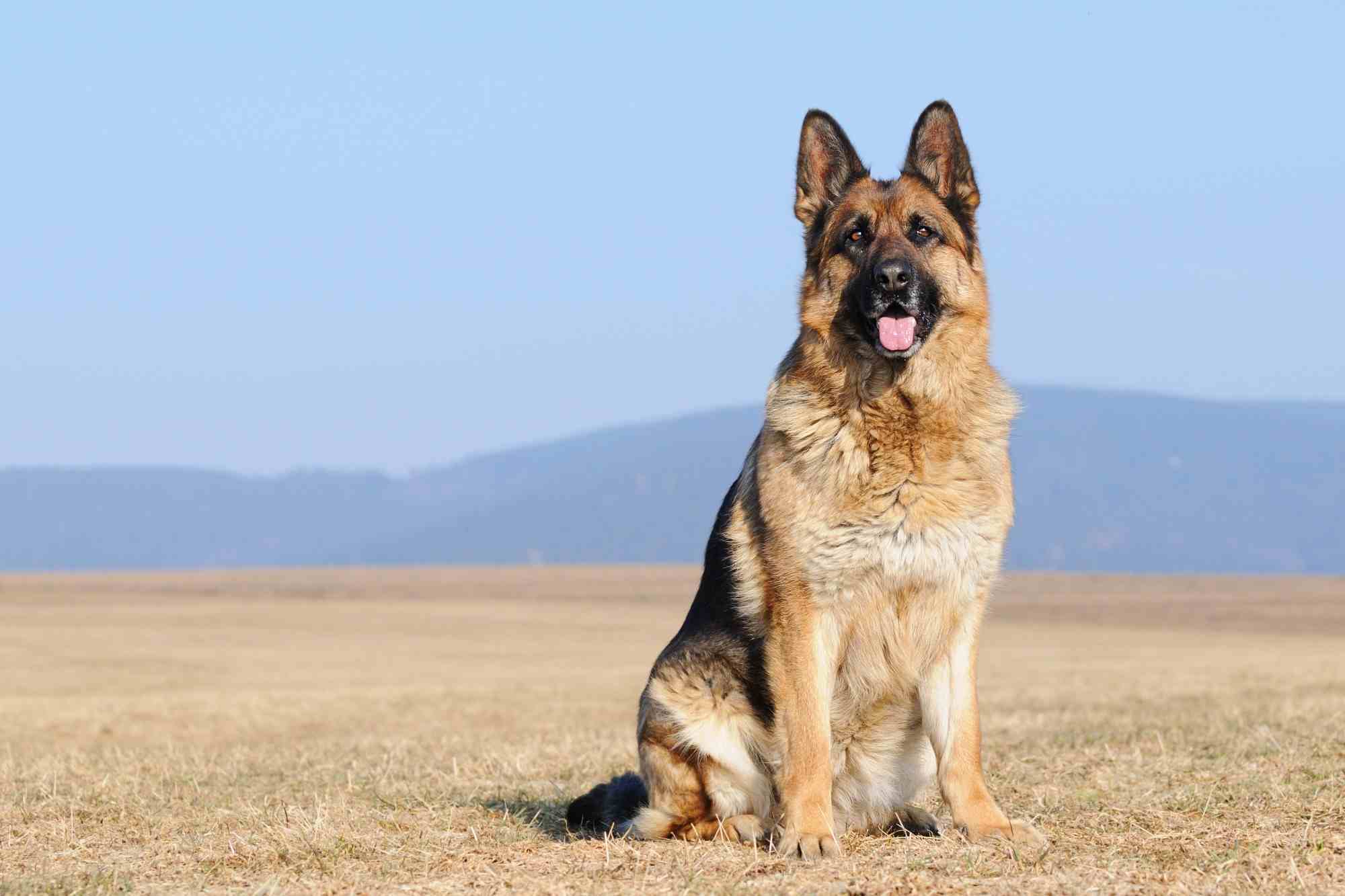
Physical description of German Shepherds
The German Shepherd Dog is a large, agile, muscular dog that, when viewed from side on, presents a picture of smooth, graceful curves rather than angles. They are known for their bushy, thick tails, pointy ears and wolf-like appearance.
The coat colour of a German Shepherd is something of a lucky dip, with its adult colour not known until it sheds its puppy coat, but it is generally a mixture of black and gold.
| Weight range | Male 30 to 40 kg, female 22 to 32 kg |
| Height range | Male 60 to 65 cm, female 55 to 60 cm |
| Colours | All, but typically a mixture of black and gold |
| Coat length | Medium |
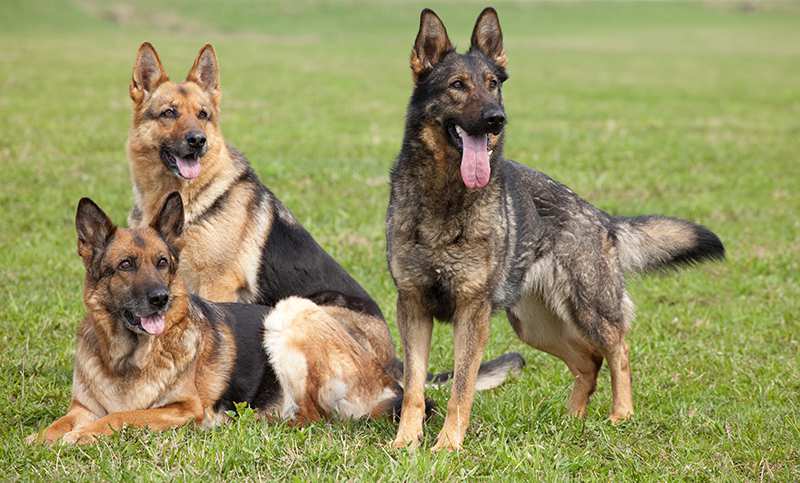
German Shepherd personality and temperament
German Shepherds are considered to be a very safe breed and gentle family companions when well trained and socialised from a young age.
Considered to be at the forefront of canine royalty, German Shepherds have been described as having a “noble” character. They are loyal, confident, courageous and steady, with a good sense of self-esteem. They have an aura of aloofness and don’t make friends immediately or indiscriminately.
German Shepherds were bred for their intelligence and are regarded as one of the smartest dog breeds, having the ability to learn commands for many tasks. Their intelligence, level-headedness, obedience and trainability have resulted in the German Shepherd being one of the most adaptable and versatile dog breeds in the world and they are often employed in military, search and rescue, security and police roles. They are also often used as service dogs for the blind or therapy dogs for disabled children.
Faithful, fearless and loyal companions, German Shepherds love to be close to their family and only bark when they feel it’s necessary. They have a unique instinct to protect, but they can become over-protective of their family and territory if not socialised from a young age. They are willing to do anything to protect their loved ones, even to the point of giving their own life. This protective nature makes the breed the perfect police dog.
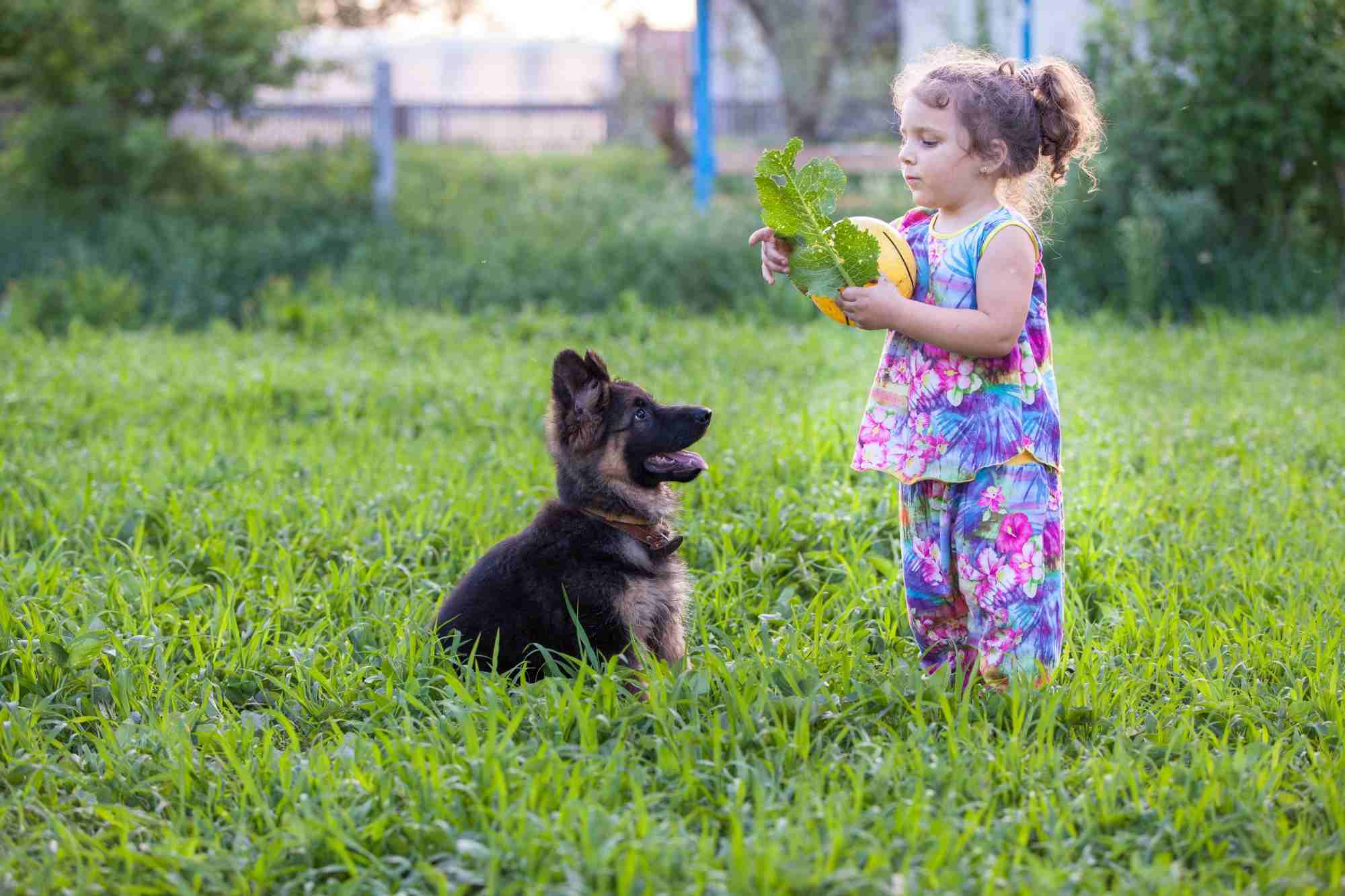
German Shepherds with kids and other pets
German Shepherds, particularly females, are great with children in their own family, but as adults they are large and boisterous they should not be left alone with young children and babies.
Most German Shepherds can co-exist peacefully with other dogs and cats in their own family, if they are raised together from a young age.
It’s essential to be cautious when they are around unfamiliar children and animals.
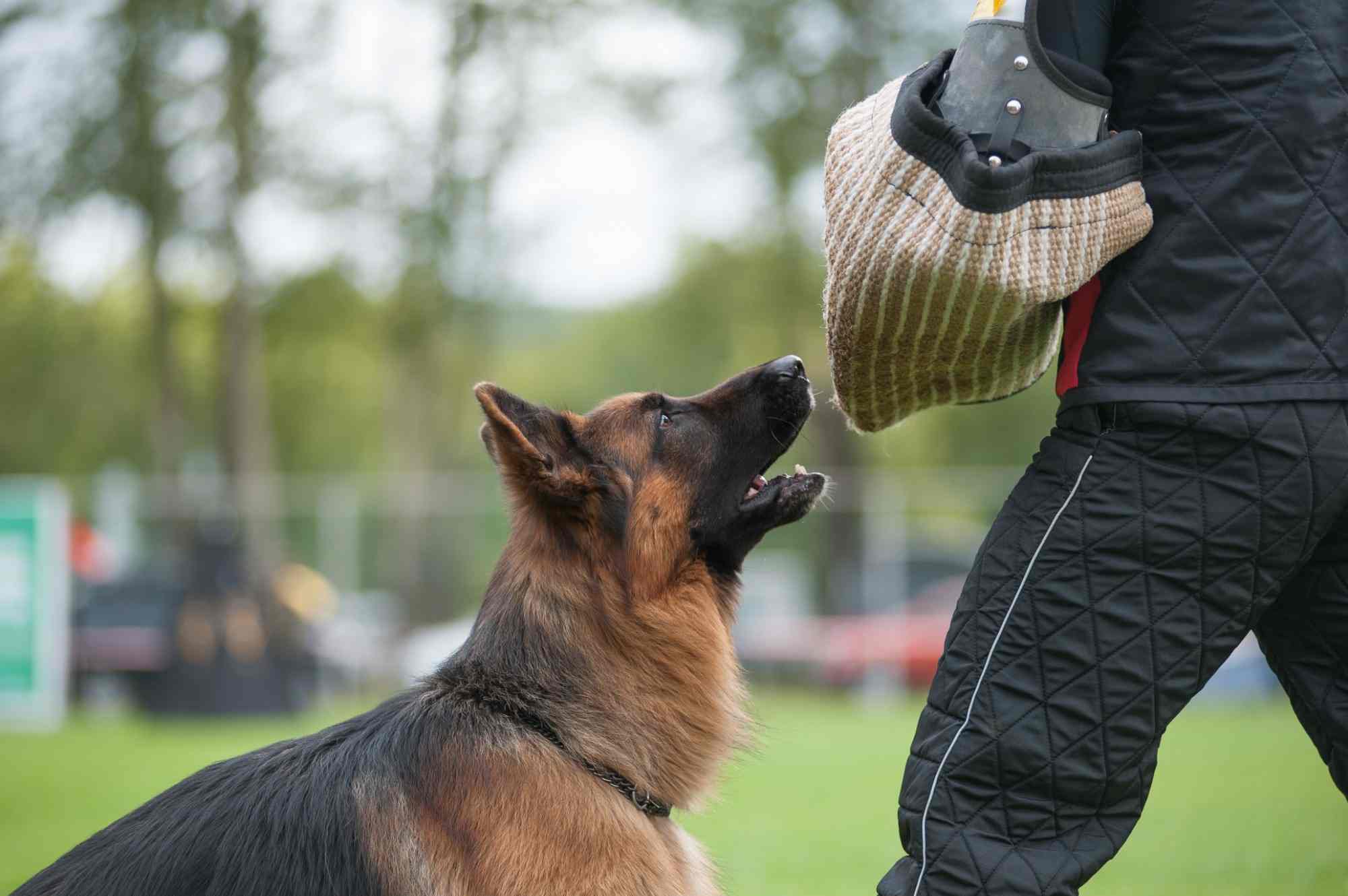
German Shepherd training and exercise
German Shepherds are highly active dogs who love strenuous activity and need to be taken for a strenuous walk or run at least once a day. They also love to chase and play catch, so playing with a ball or Frisbee is a great activity for them.
Highly intelligent, German Shepherds also need plenty of mental stimulation. Incorporating training sessions into each excursion or training them to help around the house so they can have a service roll within the family home will be very beneficial. Participating in canine activities such as agility, herding, tracking, and dock diving provides excellent physical and mental exercise and is fun and rewarding for both dog and owner.
This breed can make the ideal family dog when given enough physical and mental exercise. On the other hand, a lack of activity or mental challenges can lead to them becoming restless, frustrated and destructive.
Early socialisation and puppy training classes are vital, and continuing obedience training will help ensure that the German Shepherd will grow to be an adaptable and well-mannered adult. Consistency and positive, reward-based training by a firm, fair and assertive owner are critical for successful training.
| Energy level | Very high |
| Exercise requirements | Very high |
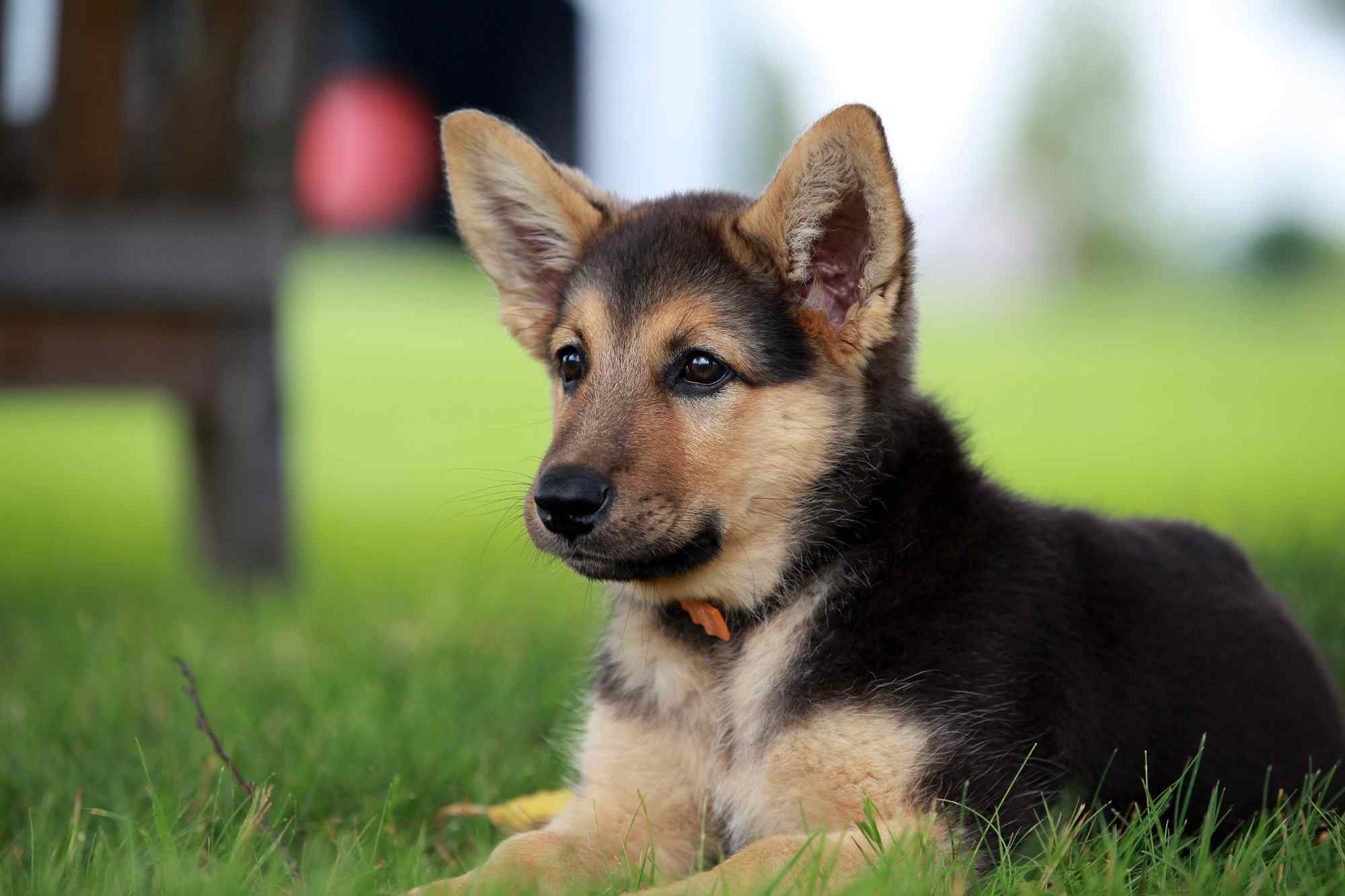
German Shepherd feeding and nutrition
Feed your German Shepherd a high-quality dog food appropriate for the dog’s size, age (puppy, adult, or senior), energy requirements and activity level.
Take particular care during puppyhood to feed a diet that keeps the puppy from growing too fast, particularly between age four to seven months, as this can result in bone disorders.
Check with your vet if you have any concerns about your dog’s weight or diet.
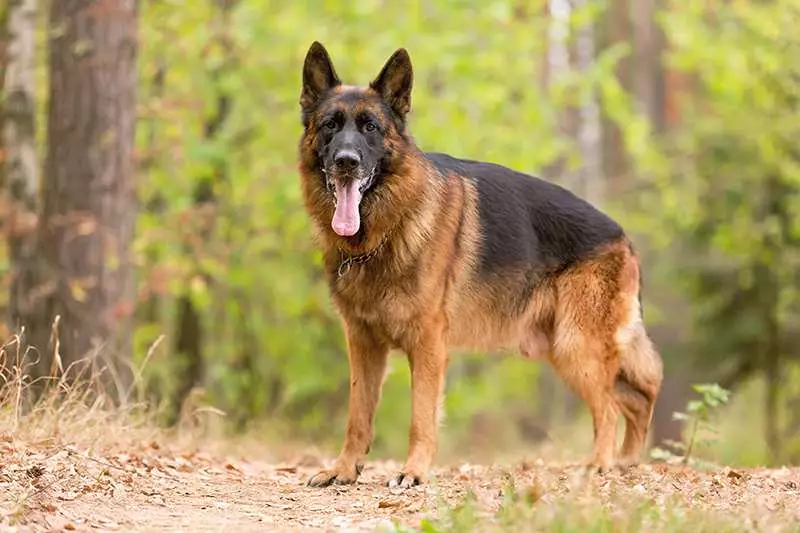
German Shepherd care and grooming
The German Shepherd has a medium-length, double coat comprising a dense, harsh and close-lying outer coat with a softer undercoat. that is easy to maintain, usually requiring a quick brush every few days or so to help remove loose hairs.
They do shed more profusely once or twice a year, when it might be a good idea to keep the vacuum nearby. Daily brushing is the only way to prevent a build-up of fur all over the house.
They only need an occasional bath.
Health issues for German Shepherds
- Hip and elbow dysplasia occur when the ball and socket of the affected joint do not fit together properly, which can lead to arthritis later in life. According to the Orthopedic Foundation for Animals, 19% of German Shepherds suffer hip dysplasia to some extent.
- Degenerative Myelopathy is a disease affecting the spinal cord that can lead to hind limb paralysis in older dogs. Some German Shepherds may experience this neurological disease, but it does not occur so often as to suggest there is a predisposition in the breed. An inexpensive saliva test is available to test for the disease, and prospective buyers can request a test from the breeder.
- Von Willebrand’s Disease is a blood disorder which impedes the blood’s ability to clot. This can lead to excessive bleeding post-surgery, nosebleeds, bleeding gums or blood in the stomach. It is currently incurable, and blood transfusions are the only treatments available. Most dogs suffering this disease can lead normal lives, and there are tests available to determine if your pet has it.

- Exocrine Pancreatic Insufficiency affects 1% of the UK German Shepherd population, causing the dog to lose the ability to digest and absorb food. Symptoms include weight loss, appetite loss, gas and a change in the dog’s stools. It can be treated by giving the affected dog pancreatic supplements, which are taken with food.
Not all conditions are covered by Pet Insurance. For details of Bow Wow Meow Pet Insurance cover, refer to the Product Disclosure Statement.
Thinking about insuring a German Shepherd
Thinking about insuring a German Shepherd
Learn moreThinking about insuring a German Shepherd
Learn moreFree engraved pet ID tag on sign up3
Customer Satisfaction
21 day cooling off
24/7 Live Vet^ care

GapOnly® in vet claims
MORE INFORMATION
German Shepherd Dog League of NSW: http://www.gsdl.info/
German Shepherd Dog Club of QLD: https://www.gsdcqld.org.au/
German Shepherd Dog Club of VIC: http://www.gsdcv.org.au/
German Shepherd Dog Club of SA Inc: http://gsdcsa.org.au/
German Shepherd Dog Association of WA Inc: http://gsdawa.org/
German Shepherd Dog Council of Australia Inc: http://www.gsdcouncilaustralia.org/
Sweet Shepherd Rescue Australia Inc: http://www.sweetshepherdrescue.com.au/
German Shepherd Rescue VIC: http://gsrv.com.au/
German Shepherd Dog Rescue South Australia: https://gsdrescuesa.com.au/

